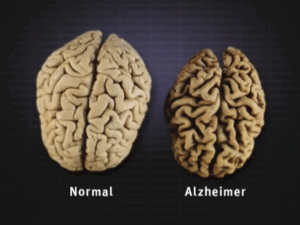How trained dogs transform health and independence
The term service animal means “dogs that are individually trained to do work or perform tasks for people with disabilities”(1). Service animals provide stability, independence, and support for their owners. According to the ADA, the Americans with Disabilities Act, a dog becomes a service animal if they are specifically trained in a certain task (1). For example, there are many forms of service animals. Guide dogs assist people with visual impairments. Service dogs are either mobility or medical. Mobility service dogs help people with physical disabilities such as retrieving items for an individual in a wheelchair and medical service dogs sensing when their owner is about to have a medical emergency like a seizure. Service animals perform countless noble acts, but perhaps the most impactful thing they do is create a meaningful relationship through trust with owners.
Until recently, there has not been any concrete scientific evidence to determine the impact of service animals on physical and mental health. However, a study done by Purdue University’s College of Veterinary Medicine changes this fact. The study took 154 participants: 97 with service dogs and 57 on a waiting list. They used surveys like the Paediatric Quality of Life (PedsQL) to determine effects on physiological health, the Patient Reported Outcomes Measurement Information System (PROMIS) to determine the changes in companionship, sleep disturbance, and anger, and lastly the Monash Dog-Owner Relationship Scale as a way to measure human-animal bonds. The study concluded that there was little change to sleep disturbance, anger, and companionship; however, there was a significant difference in psychological health between people who had a service animal and those on the waiting list for one, particularly in having higher emotional, social, and school/work functioning. This study pinpointed one of the main benefits of having a service animal is the large impact they have on their owner’s quality of life.
While the statistics provide some insight into a service animal’s impact, nothing compares to the effect they have had in people’s day to day life. Joe is a veteran who served 18 years as a USAF MSGT and was honorably discharged. After struggling to find happiness and live a normal, healthy life, he was diagnosed with PTSD. He reached out to Golden Paws for help and was partnered with Zelda, a lovable golden retriever. Joe states, “Zelda has been there in the darkest of times. Even when PTSD takes a toll and I consider suicide. She reminds me about how much love there is in our home and how much they rely on me.” Recovery is not always easy, but the right support system, whether that be from people or animals, makes all the difference.
Another impactful story is about Saylor and her service dog, DB. Saylor is a young girl in school who uses crutches and a wheelchair as she was born with spina bifida. DB opens and closes doors, retrieves fallen items, and helps Saylor maintain balance. DB assists Saylor overcome obstacles while fostering a safe environment through friendship.
Research consistently shows that service animals improve quality of life. Medical dogs can detect when their owners are about to have a seizure. Guide dogs can help the visually impaired cross the street. However, service animals also do much more. They actively improve the emotional well being of their owners as they lower worries and anxieties that may come with having a disability. A service animal performs tasks for their owner, but more importantly, they are companions who build bonds and keep people safe.
Sources:
- ADA. (n.d.). ADA Requirements: Service Animals. U.S. Department of Justice. https://www.ada.gov/resources/service-animals-2010-requirements/
- Purdue University. (2019, February 14). Service dogs benefit the well-being of their handlers, research shows. https://www.purdue.edu/newsroom/archive/releases/2019/Q1/service-dogs-benefit-the%20well-being-of-their-handlers,-research-shows.html
- Rodriguez, K. E., Bibbo, J., & O’Haire, M. E. (2020). The effects of service dogs on psychosocial health and wellbeing for individuals with physical disabilities or chronic conditions. PLOS ONE. https://pmc.ncbi.nlm.nih.gov/articles/PMC6625941/
- Benefits and Challenges of Mobility and Medical Alert Service Dogs. (n.d.). PMC. https://pmc.ncbi.nlm.nih.gov/articles/PMC10520918/
- (Golden Paws). (n.d.). Success Stories. Retrieved from https://goldenpaws.org/success-stories/






Comments are closed.